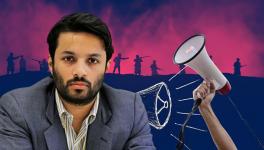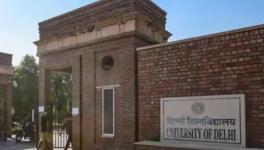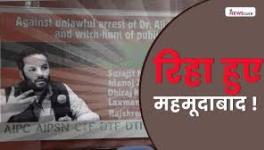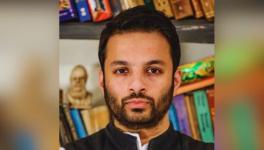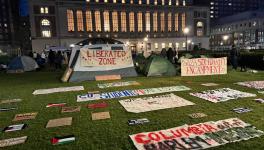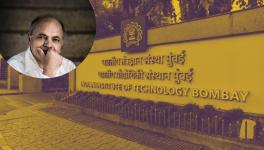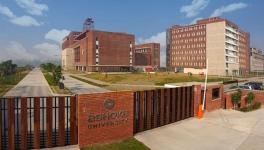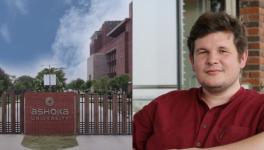The Idea of a University
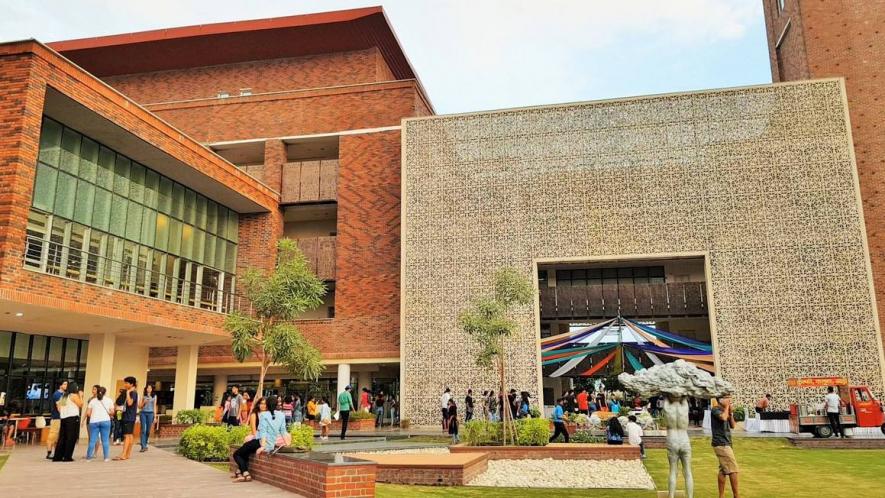
Image Courtesy: The Wire
In a recent response to an ex-student, later published by The Print, Sanjeev Bikhchandani, one of the co-founders of Ashoka University, expounds on “The Idea of a Liberal University”. Whether one agrees with Bikhchandani or not, his response to the letter is an interesting contribution to the debate on academic freedom. There is no doubt that it should go as an essential reading to understand the perspective of a liberal university in today’s India.
Bikhchandani does not call for deeper academic analysis and an engagement with expert knowledge on what a university should be like. Rather, he attempts to explain how a university functions and the boundaries of the personal and professional in an academic life. He also highlights the difficulties of running a university and the balancing act that it has to perform on a daily basis in its own life.
Long ago, J.H. Newman, spoke on “The Idea of a University” (1852). He argued that a university is a place for “teaching universal knowledge”, its object is “intellectual, not moral” and it contributes to “diffusion and extension of knowledge” and not its “advancement”. Nevertheless, the “assistance” of the church is necessary for the “integrity” of a university.
Is the idea of a university still the same?
The university of today is usually seen as a secular institution facilitating a variety of ideals, in the case of Ashoka, for instance, this ideal is particularly “liberal”. The question is, can the promotion of the liberal ideal be pursued in a universal fashion? The answer is, yes. But that does not mean that any other ideal type cannot be promoted in a universal fashion, either.
Can a research- based university afford only to “diffuse” or “extend” the existing knowledge forms? The answer is that it should not. In the modern set-up, knowledge is constructed in a variety of ways both inside the classroom, in conferences, through research projects, peer reviewed publications, casual conversations over tea/coffee and above all, unfortunately, through marginalisation of the competing epistemes of knowledge-seeking.
That being the case, what could be the idea of a university today?
For Bikhchandani, a liberal university offers a variety of methods to pursue scholarly activity, activism being only one of them. The choice of being a scholar activist, or a “scholactivist”, is a personal choice of the scholar. The university neither owns it nor would promote it. Within that framework, the university does not stand behind the opinion of the scholar, especially the ones that seem to be “non-academic” in the formal sense and which have the propensity to arouse public counter-opinion (read: state’s unacceptance).
While this might seem to be a neutral position that a university takes, it does not occur as non-partisan or non-political in any sense. Almost every public posturing in a democracy by a public-facing institution is political. It cannot be otherwise. Even the choice to maintain distance from controversial issues of the day is a political choice.
Scholactivism is fundamental to knowledge pursuit. It is the public activism of the scholars that make them public intellectuals. In Bikhchandani’s framework, university professors cannot be public intellectuals as well. If that is the case, how will critical scholarship develop within academic institutions, more particularly in the university set-up? How would the majoritarian knowledge episteme be challenged? More importantly, how would we celebrate the works of someone like Ngũgĩ wa Thiong'o, the Kenyan literary giant who died recently, who wrote from the margins, in the language of the oppressed culture and against the tide of the majoritarian elite?
Legal education as an intensely political space
Take for instance the case of legal education. If mainstream legal education reproduces hierarchy, as Duncan Kennedy once wrote, would it not be fair to criticise its structure?
If “law schools are intensely political spaces,” as he argued, would it be fine to treat legal education only through the prism of emancipation? If national law universities are not working to their potential, should we not critique this downfall? Should such discussions not go into the public realm or for that matter inside the classrooms of the NLUs themselves?
In a similar vein, one must ask, what stops an academic from discussing issues of national security (whether in appreciation or in lapse) when everyone else including the media personnel, policy analysts, politicians, international intelligentsia and even the public at large is discussing it? The constitutional standard of free speech under Article 19(2) is the only limitation that applies here, nothing more can.
Let us take another example. Should we not criticise the Supreme Court of India in its engagement with a dispute at hand? Cannot we be skeptical of the reasoning of the Court in the Ayodhya/Babri dispute? Is the Court’s judgment beyond the realm of public reasoning and criticism? What is wrong in such discussions when done to inform, educate and even frame issues for public debate. Should we not be concerned when cash is recovered from the official premises of a sitting judge of a High Court? Should we not demand action when another sitting judge at the High Court adopts a communal tone in his public speech? Should the citizenry not be concerned about open communal remarks on army personnel by a sitting member of the legislature? Why should scholars be restrained from making reasonable interventions on such issues?
Suppressing ‘demosprudence’
Someone might make a cultural argument that the US is different from India. Well, the question of academic freedom does not stem from academic culture, it is a direct byproduct of institutional ethics and academic integrity. Whether the State should regulate the social pursuit of knowledge by individuals, communities or even society at large, remains a fundamental question here. Whether universities should additionally regulate public discourses of their students and teachers through indirect intimidation also needs to be addressed furthermore.
Who will educate society about what is happening around all of us, how to understand it, how to confront it and how to sensitise the population about potential hazards of such toxicity, if there is any? Does a university not have a moral obligation to respond to critical issues of the day, especially ones that impinge on its own image, such as matters concerning academic freedom?
Newman’s argument that the object of a university is “intellectual” and not “moral” also requires attention. Can intellectual pursuit be devoid of any moral compass? If the purpose of a university is only to replicate the knowledge-structure, how would we understand the conceptions of “discrimination”, “bias”, “agenda-setting”, “politics of framing” etc.?
While the disciplinary pursuit of knowledge is fundamental to its learning (for instance, training in doctrinal interpretation of law), the questions of “situationality”, “de-localisation”, “marginalization” etc. are equally relevant.
Otherwise, how would we know why we are treated in a certain manner, if we are? Why did Mohammad Najeeb and Rohith Vemula incidents happen at the first instance? Why is lynching still happening in the name of cow-slaughter in India? Why are only religious minorities, especially Muslims, the target of such crimes? Shouldn’t such uncomfortable questions move further from journalistic reporting or opinion pieces to classroom and peer-level academic discussions? Who will take them there?
A university cannot only be a training ground for professionals or a socialising space for the citizenry in the national ethos, or a forum to instill social consciousness and creativity. It must also propose a level-playing field to forge meaningful conversations about individuals, communities and society, and their critical habitus.
Over and above all, the university must have the ability to hold its own ground—the pursuit of knowledge production, seeking and training for a prosperous future. While it is important to understand how a university sees itself, a critical response on how it should be seen by society is also desired. How can we remain oblivious of the returning gaze?
Newman also highlights the importance of “integrity” for a university. In a theological setup, the integrity stems from the religious text. What then about today’s university which is expected to operate within a liberal secular space? Where would such integrity stem from? How should such integrity be asserted in the face of rising populism?
A university’s integrity springs from its intellectual autonomy and the pursuit of academic freedom. Whether such intellectual autonomy and academic freedom is shaped by its scholars/academics or not is a question that must be addressed within Bikhchandani’s worldview. To what extent and in what circumstances the university can move away from the so called controversial observations of any academic/scholar, are the two other questions in this regard.
Lastly, one might say, the core point remains unaddressed—that university is different from the scholar it hires and cannot be expected to own all his opinions.
The argument holds strong ground. However, to establish it one need not twist the idea of a university, the understanding about learning, the demands of critical thinking and the pursuit of actionable knowledge. The social justification for Bikhchandani’s argument can easily be located elsewhere—in the minds of common prudent individuals or else left to the public consciousness at large, or more specifically in the hands of the larger scholarly community.
Let us build a knowledge community that is not based on false intimidations and non-academic pursuits. Let the institutions, especially universities, devise strategies to balance the competing interests of academic freedom and state interests; by not refraining from asking uncomfortable questions but by fostering meaningful dialogues that last longer than our individual lives.
The writer is researcher and co-founder of Project Mishkat, a platform to facilitate legal discourse on Muslim identity in India. He has previously taught at Jindal Global Law School, National University of Juridical Sciences and Aligarh Muslim University. He is interested in the intersection of law, religion and identity.
Courtesy: The Leaflet
Get the latest reports & analysis with people's perspective on Protests, movements & deep analytical videos, discussions of the current affairs in your Telegram app. Subscribe to NewsClick's Telegram channel & get Real-Time updates on stories, as they get published on our website.










